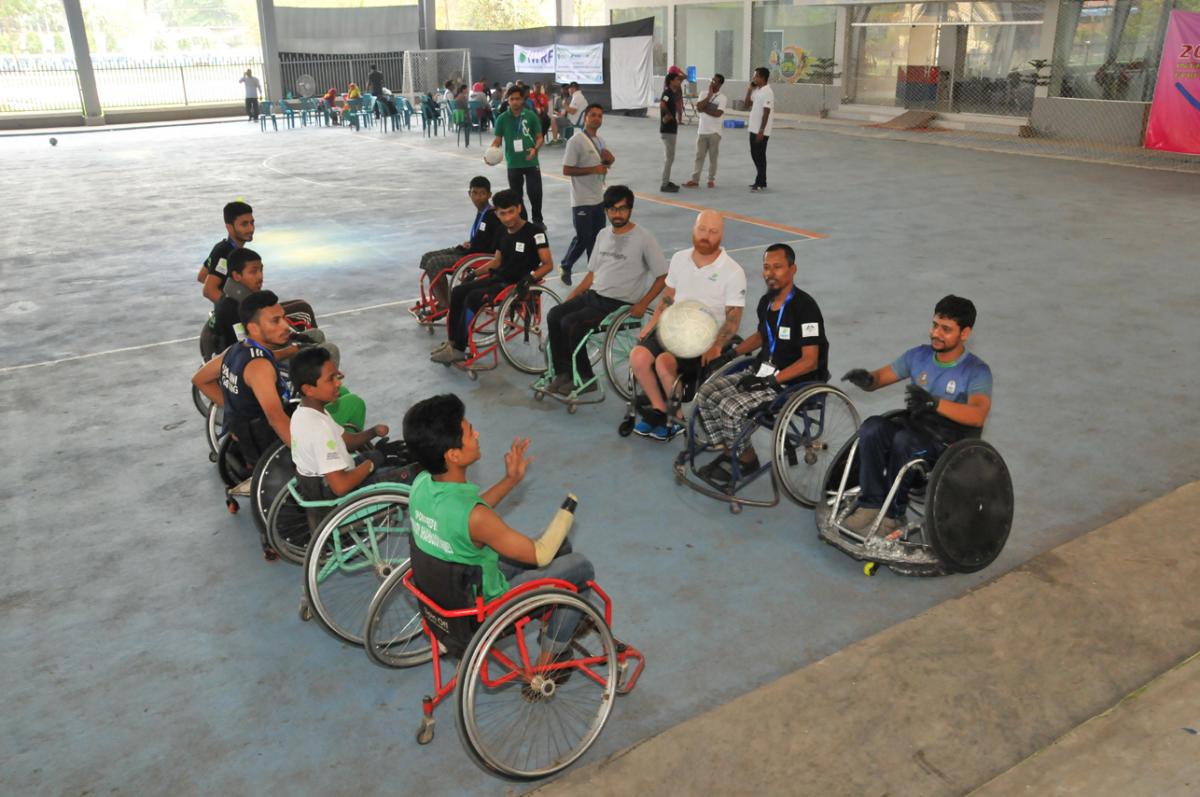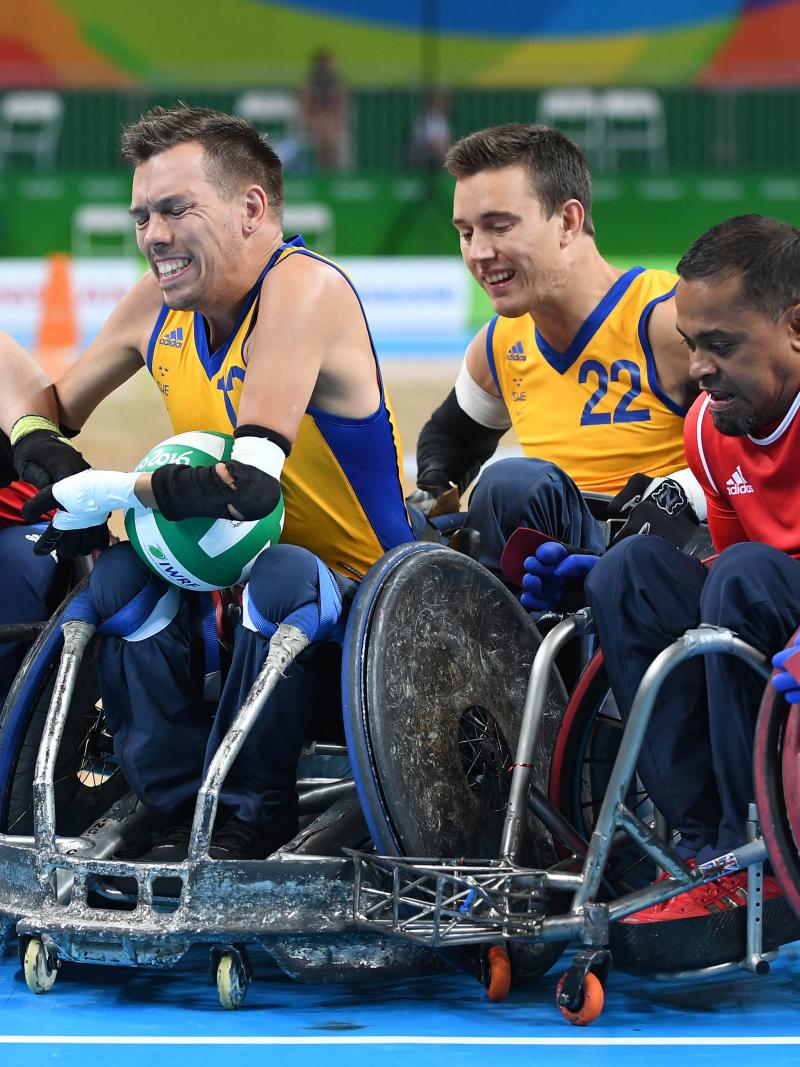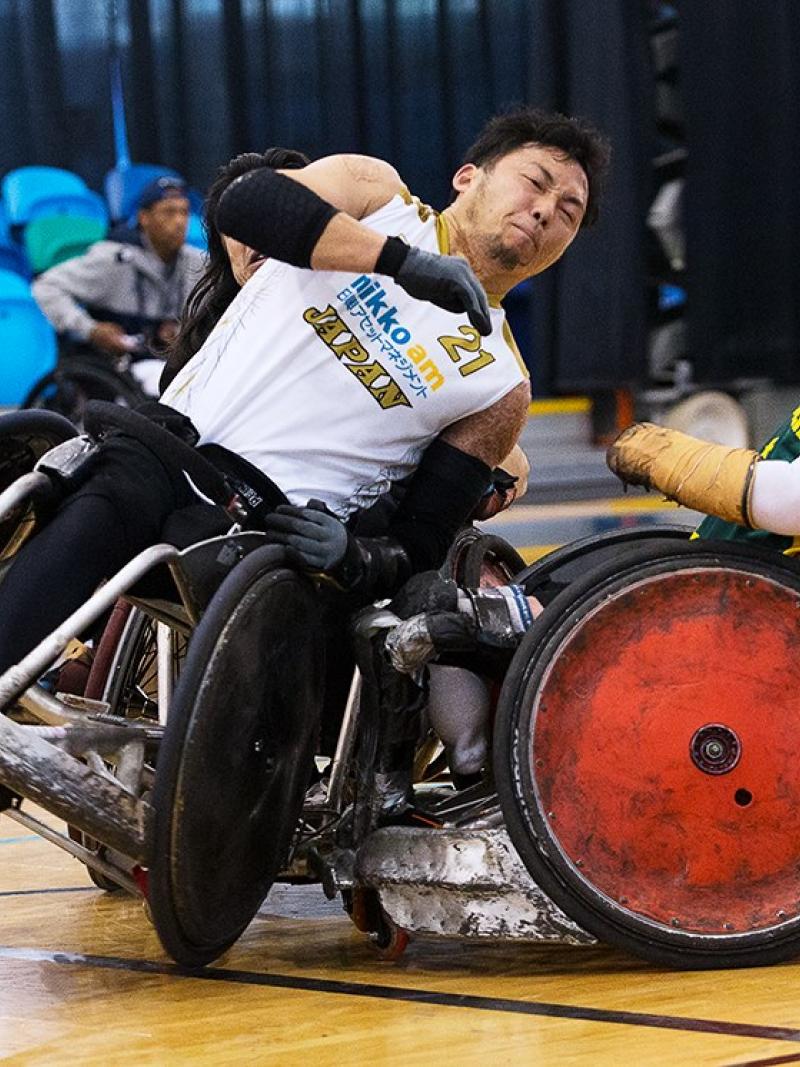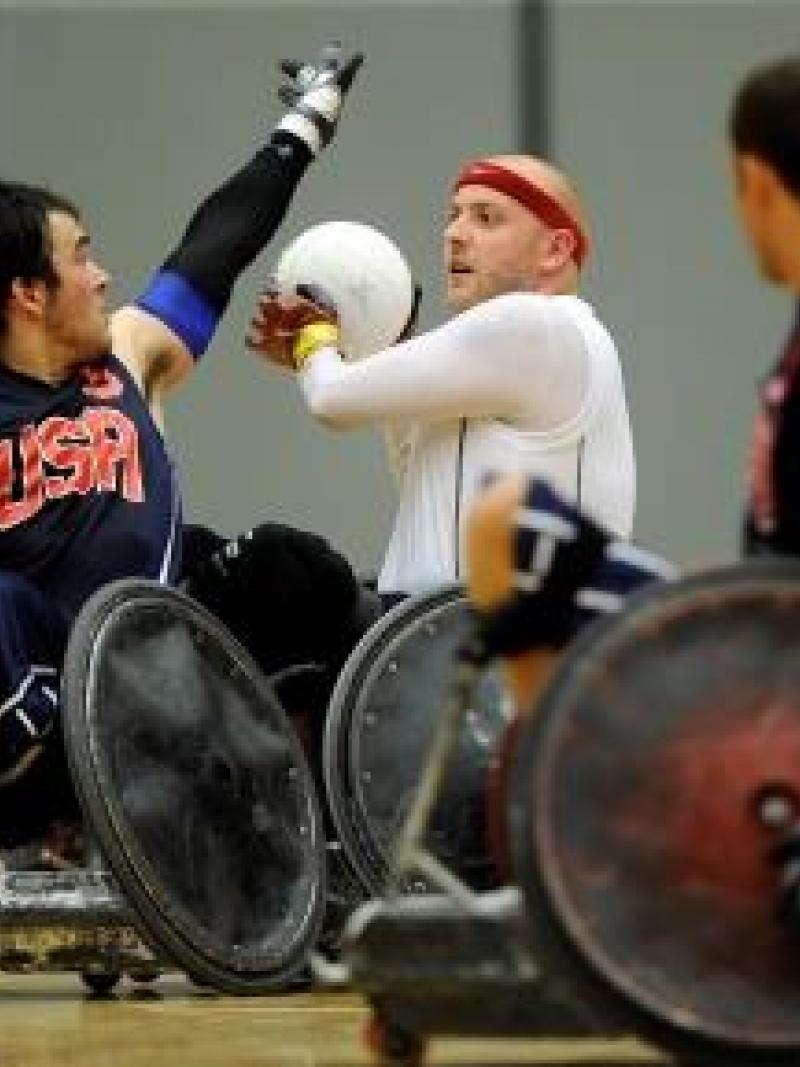Wheelchair rugby clinic held in Bangladesh
Cherie Harris, an instructor at the clinic, shares her experience of the development of the sport in the country. 20 Apr 2017
The IWRF and DSA held a wheelchair rugby clinic in Bangledesh.
Hot steamy conditions welcomed us to the colourful chaos that is Dhaka, Bangladesh, in early April. Thanks to funding from the Department of Foreign Affairs and Trade in Australia, via support from Disability Sports Australia, the International Wheelchair Rugby Federation (IWRF) was able to bring a development clinic to Bangladesh.
Back in June 2016, one delegate from Bangladesh attended an IWRF regional clinic in Indonesia. Ten months later, Bangladesh went from an idea of introducing wheelchair rugby to having 24 players, keen medical personal wanting to classify, aspiring coaches and referees, and a positive forward-thinking administration. The Bangladesh Rugby Federation (Union) played an important support role in both attending the clinic as well as several executives stating they wanted to add wheelchair rugby to their umbrella of sports which already includes 15’s, 7’s and autism rugby. This was backed up by the Bangladesh Minister of Sport.
The thirst for knowledge was apparent from the beginning with an avalanche of questions and players wanting to get sucked in. The IWRF team were impressed with the level of ball and chair skills which is credited to the Centre for the Rehabilitation of the Paralysed (CRP), having compulsory sport sessions every afternoon for rehab. These players improved greatly from day one to day four, and focused on drills understanding why they were needed and what aspects of the game they covered. Coaches were taught at the same time as the players, and had an integral role in performing all drills. Referees and classifiers had plenty of time in small groups with their trainers learning theory before becoming involved in the games (for the refs).
A photo gallery of the wheelchair rugby clinic in Bangladesh is available on the IWRF’s website.
All delegates of the clinic were provided with every aspect of the sport by moving in small groups round the five trainers. The feedback on this was positive with delegates stating they liked being able to learn about classification, volunteers and drills even though that was not the area they were focusing on. The Australian High Commissioner witnessed the clinic in action and a rugby scrimmage on day three. The clinic culminated on day four with a local coach leading training and a competitive game with local referees. While rugby chairs are still scarce, we do not see this as something that will hamper the progression of skills leading toward Bangladesh appearing on the international stage within the next four years.
Jon Corson, Katie Burke, Curtis Palmer and Sholto Taylor were also instructors in Bangladesh. The Australian Government Department of Foreign Affairs and Trade (DFaT), and Jenni Cole and Steve Loader at Disability Sports Australia provided great support in making this clinic possible.

 Facebook
Facebook
 Instagram
Instagram
 Twitter
Twitter
 Youtube
Youtube
 TikTok
TikTok
 Newsletter Subscribe
Newsletter Subscribe



